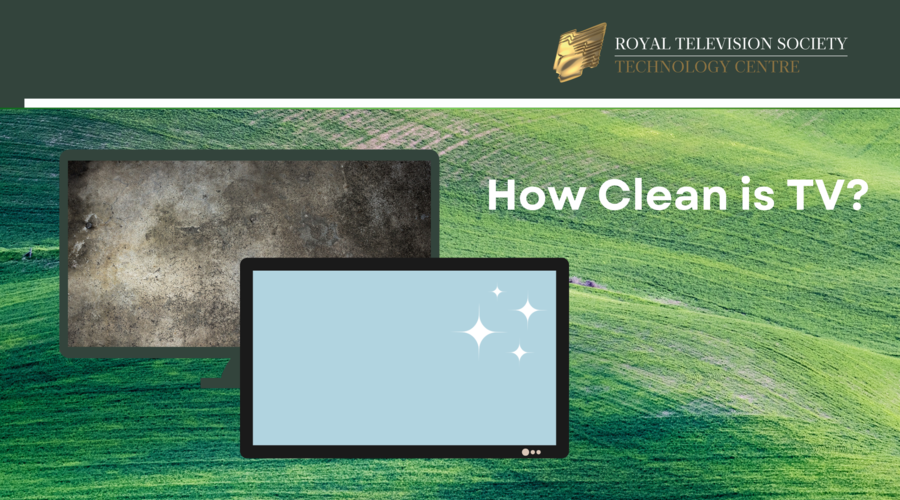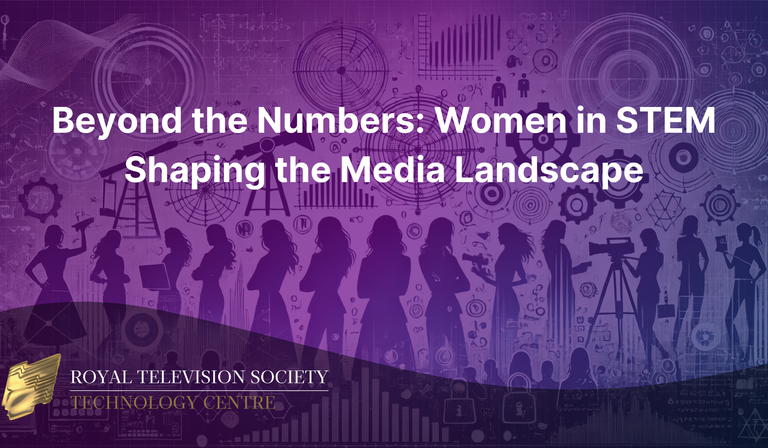Television is arguably one of the most effective influencers when it comes to presenting information about climate change. From the landmark BBC series like Planet Earth and Wild Isles, through to Sky’s weekly and daily Climate Shows, and not forgetting Channel 4’s recent controversial documentary with Chris Packham ‘Is It Time To Start Breaking The Law?’, we’re seen to be doing a pretty good job ‘on screen’.
What about behind the scenes of our industry?
Building on the Climate Pledge at COP26, COP28 has recently agreed a landmark deal, that, for the first time references the phasing-out of fossil fuel. At this critical time, the RTS Technology Centre has brought together leading experts from the media industry to discuss the progress made by our industry towards global climate targets.
BAFTA albert’s Carbon Calculator data reveals the average hour of TV in 2021 contributed 5.7t of CO2 emissions per hour – this represents a significant reduction from the pre-Covid 2019 average figure of 9.2t.
Sky was the first media company to go carbon neutral in 2006 and is well on its way to go net zero carbon by 2030
The BBC has adopted a Science Based Target approach to all its operations, both internal and external, and has committed to reducing greenhouse gas emissions by 46% and 28% respectively from a 2019/20 baseline.
So plenty of positive activity to date, but are we doing enough, both on-screen and off? Are we tackling the environmental issues holistically or are the editorial, creative and technology areas of our industry operating in silos?
To discuss all of this, and set the scene for another event later in the year where we will seek to achieve real action in our industry, we’ve assembled a panel of industry experts.
In line with the Climate Pledge at COP26, COP28 has recently reached a landmark agreement, referencing the phasing-out of fossil fuels for the first time. Seizing this pivotal moment, the RTS Technology Centre has assembled key experts from the media industry to assess our progress towards global climate targets.
According to albert's Carbon Calculator data, the average hour of TV in 2021 contributed 5.7t of CO2 emissions per hour. This marks a notable reduction from the pre-Covid 2019 average of 9.2t. Noteworthy initiatives include Sky's carbon-neutral status since 2006, with a commitment to achieving net-zero carbon by 2030. The BBC has adopted a Science-Based Target approach for all its operations, pledging significant reductions of 46% and 28% in greenhouse gas emissions internally and externally, respectively, from a 2019/20 baseline.
The upcoming panel discussion will delve into these positive developments, featuring industry leaders ..
Host
Dee Davison, Director and Sustainability Consultant, Future Dee
Panel
Alison Butler, Sustainability Supply Manager, BBC
Matt Scarff, Managing Director, BAFTA albert
Rohan Mitchell, Group ESG Director, EMG




